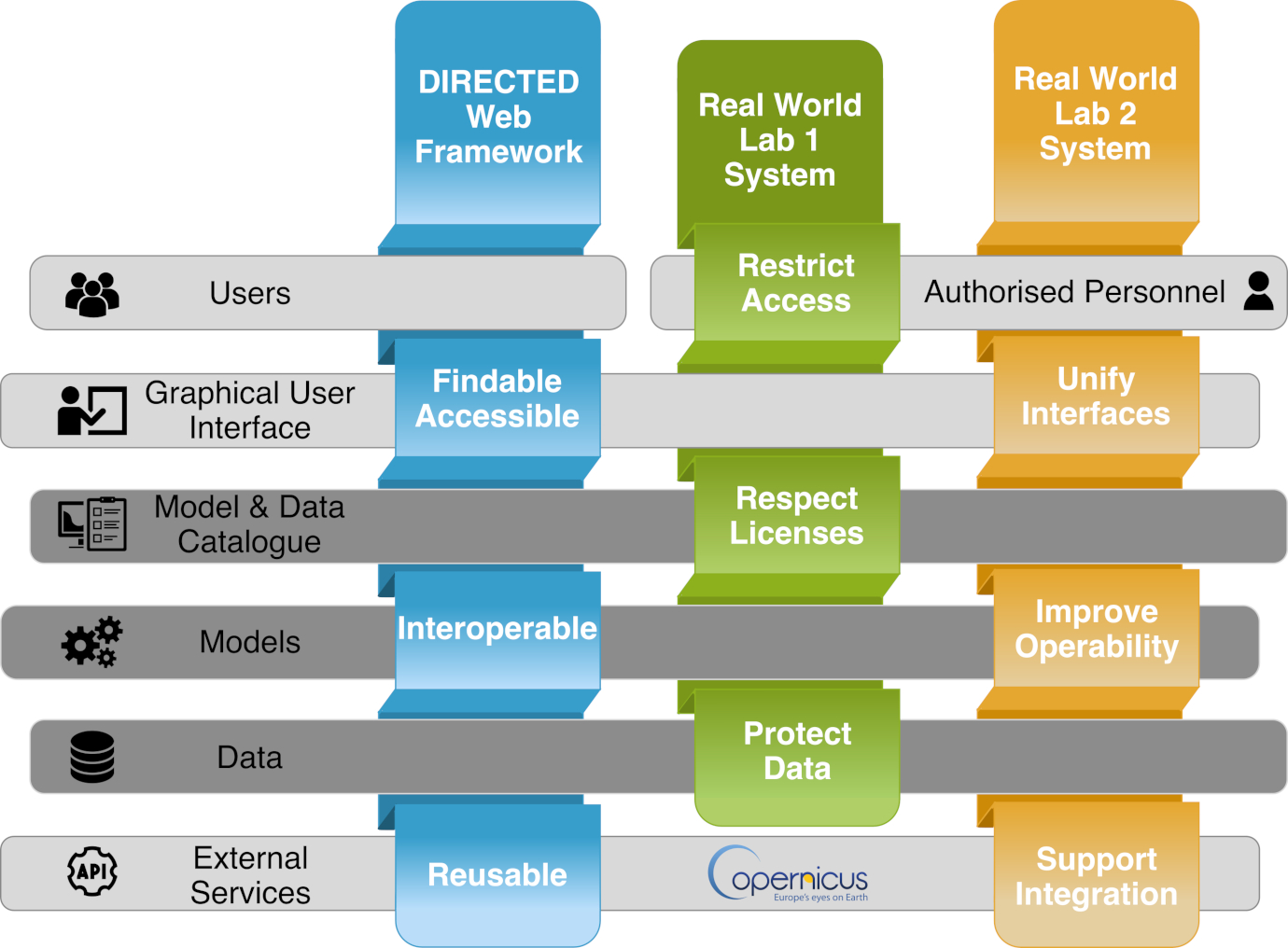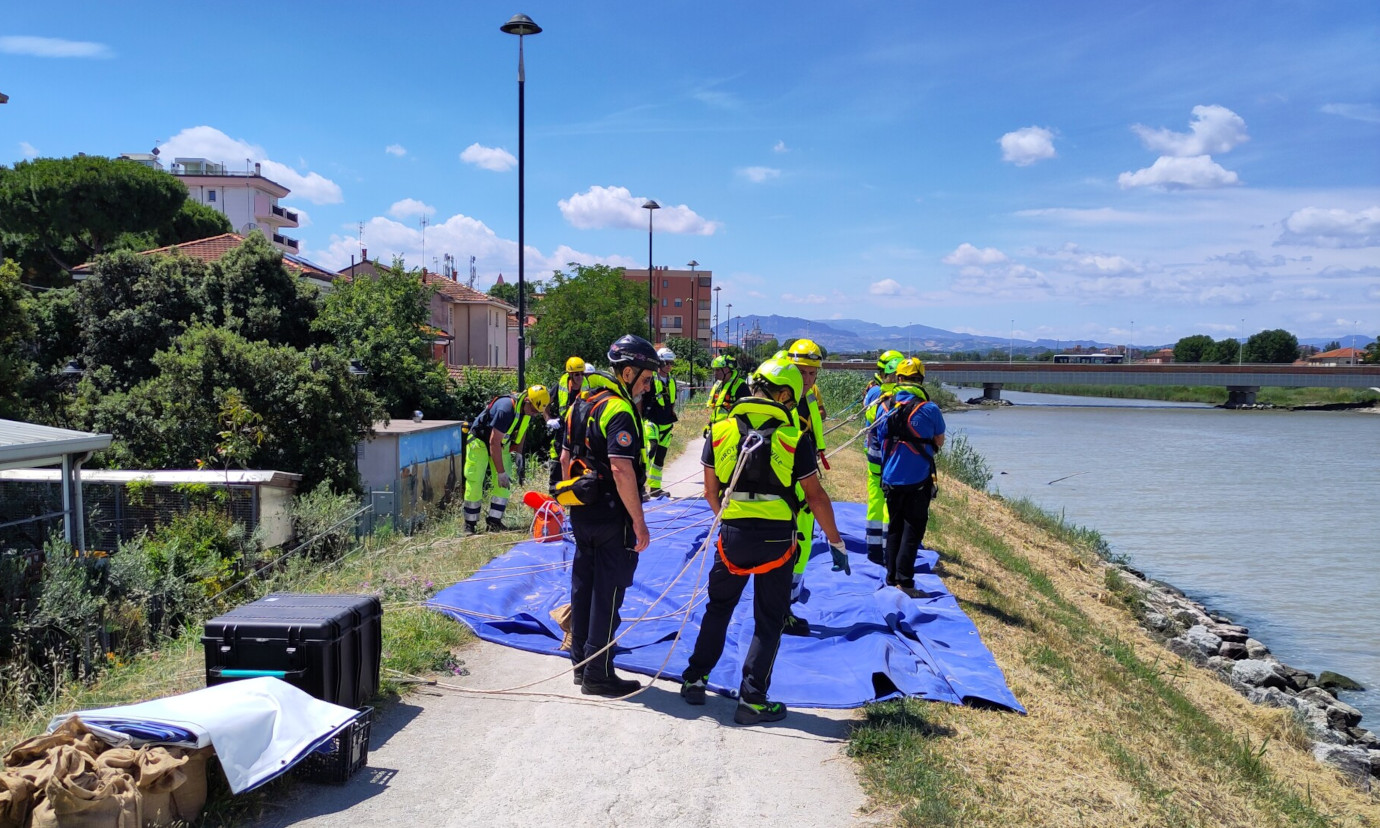Interoperable Tools and Governance for Disaster Risk Management
DIsaster Resilience for Extreme ClimaTe Events providing interoperable Data, models, communication and governance
The recent droughts and unprecedented floods in central Europe have disclosed our vulnerability to extreme weather events. Not only is climate change a driver of more frequent and intensifying weather extremes, demographic change and socio-economic development also exacerbate severe impacts. International frameworks for disaster risk reduction and climate change adaptation (e.g. the SENDAI framework, the EU Strategy on adaptation to climate change) acknowledge the critical need for integrating risk governance, communication and operational mechanisms to cope with extreme climate events throughout the entire disaster risk management cycle. DIRECTED aspires to foster disaster-resilient European societies by expanding the capabilities to
- utilize, communicate and exchange state-of-the art data, information and knowledge between different actors;
- boost the integration, accessibility and interoperability of models;
- improve dialogue and cooperation between actors involved at all levels based on enhanced community engagement and
- develop new governance and risk management strategies using a bottom-up, value-driven co-development approach.
Central to DIRECTED are four Real World Labs (RWL). They are located in European areas that have been affected by severe weather events in the recent past or have a high probability to be affected in the near future. These Real World Labs will co-develop new governance, interoperability and knowledge co-production frameworks as well as demonstrate their benefits for enhanced disaster risk management. The Real World Labs ensure that the project continuously and actively involves key stakeholders in the co-development process and addresses topical problems of multi-hazard risk management and climate-change adaptation. Key to supporting the interoperability of information will be the development of an innovative federated cloud platform that enables secure and flexible access, transformation, combination and sharing of models and data. Tailored to the needs of the Real World Labs, the platform will be based on a federated architecture that meets particular requirements regarding the handling of sensitive data and models. 52°North leads the architecture design development, as well as the platform implementation and evaluation throughout the project.
In 2024, 52°North continued to participate in and lead discussions with project partners and Real World Lab leaders to collect and detail the requirements for the data and model infrastructure, the DIRECTED Data Fabric. The partners from the Emilia Romagna region RWL hosted the General Assembly in Rimini. This was a valuable meeting to define the requirements of all RWLs, but in particular to better understand the situation and needs of the Emilia Romagna region. During a civil protection exercise, the partners had the opportunity to observe how local and regional authorities and voluntary organizations work together in the event of a disaster. A series of meetings with DIRECTED modelers also helped to further investigate the technical requirements and interactions between models. We have developed first prototypes that will help to implement the Data Fabric. The requirements collected throughout the year were used to create design documents and an implementation plan for the Data Fabric. Our team will use these to implement a first version of the Data Fabric next year.

Partners
Coordinator, Technische Universität Braunschweig (TUBS), Germany
Potsdam Institut für Klimafolgenforschung (PIK), Germany
Danmarks Tekniske Universitet (DTU), Denmark
GECOsistema SRL (GECO), Italy
Research Institute for Sustainability – Helmholtz Centre Potsdam (RIFS), Germany
University College Cork (UCC), Ireland
Region Hovedstaden, Denmark
Agenzia Regionale per la Sicurezza Territoriale e la Protezione (ARSTPC-ER), Italy
GENILLARD & CO, Germany
International Intitute for Applied Systems Analysis (IIASA), Austria
Erftverband, Germany
Zala Special Rescue Team (ZSRT), Hungary
Agenzia regionale per la prevenzione, l’ambiente e l’energia dell’Emilia-Romagna (ARPAE), Italy
Helmholtz-Zentrum Potsdam Deutsches GeoForschungsZentrum (GFZ), Germany
Oasis Hub Ltd., United Kingdom
Stockholm Environment Institute (SEI), United Kingdom

